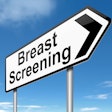Of all ethnic minorities, African-American women experience the most diagnostic and treatment delays for breast cancer. While this may not be new information to women's health specialists, it does emphasize the need for measures to remove these barriers, according to an international, multidisciplinary group of researchers.
Sherri Sheinfeld Gorin, Ph.D., and colleagues mined data from the Surveillance, Epidemiology, and End Results (SEER) database to compare time delays for the initial diagnosis and treatment of primary breast carcinoma across racial groups, including Caucasians, African Americans, Hispanics, Asian Americans, and Pacific Islanders.
Gorin is from the department of health and behavioral studies at Columbia University in New York City. Her co-authors are from the university's Mailman School of Public Health and the Herbert Irving Comprehensive Cancer Center, as well as the International Agency for Research on Cancer in Lyon, France. Co-investigator Dr. Suzanne Smith is from the department of radiology at Columbia University Medical Center.
For this analysis, 49,865 women were identified as having a diagnosis of primary breast cancer between 1992 and 1999. Of these women, 36,959 had Medicare billings for delayed diagnosis (two months or more), 43,359 were pegged as having treatment delays (one month or more), and 36,959 had combined clinical delay (two-month diagnosis delay and one-month treatment delay).
In this group, African-American women experienced the longest diagnostic delay at a median of 29 days. Eighteen percent of Hispanic women and 18% of Asian-American/Pacific Islander women had a median of 21 days for diagnostic delays.
In terms of treatment, African-American women also dealt with the greatest treatment delay (median of 20 days) compared to Hispanic women (15 days) or Asian-American and Pacific Islander women (four days). Finally, 11.2% of African-American women experienced clinical delays. In comparison, 6.5% of both Hispanic and Asian-American women experienced clinical delays.
"African-American race was a strong and consistent predictor of all forms of delay.... The findings ... suggest decreased quality of care among African Americans across the cancer continuum, from diagnosis to palliation," the authors wrote (Archives of Internal Medicine, November 13, 2006, Vol. 166:20, pp. 2244-2252).
Gorin's group suggested that computer-generated reminder messages about screening appointments and the need for follow-up could reduce these delays. Education interventions, either directed at patients or physicians, may also cut back on racial disparities.
In a previous study, Gorin found that primary care physicians in underserved communities tended to be critical of clinical breast exams and recommendations for screening mammography. However, after participating in a multicomponent physician-directed education program, these doctors were able to better identify the risk factors for breast cancer and were more likely to encourage their patients to undergo screening (Journal of the American Board of Family Medicine, March-April 2006, Vol. 19:2, pp. 110-121.
By Shalmali Pal
AuntMinnie.com staff writer
December 27, 2006
Related Reading
U.S. black women have lower breast cancer survival, December 18, 2006
Study suggests breast cancer different in blacks, October 23, 2006
Hormone risk boosts breast cancer risk for black women, April 19, 2006
Copyright © 2006 AuntMinnie.com



















